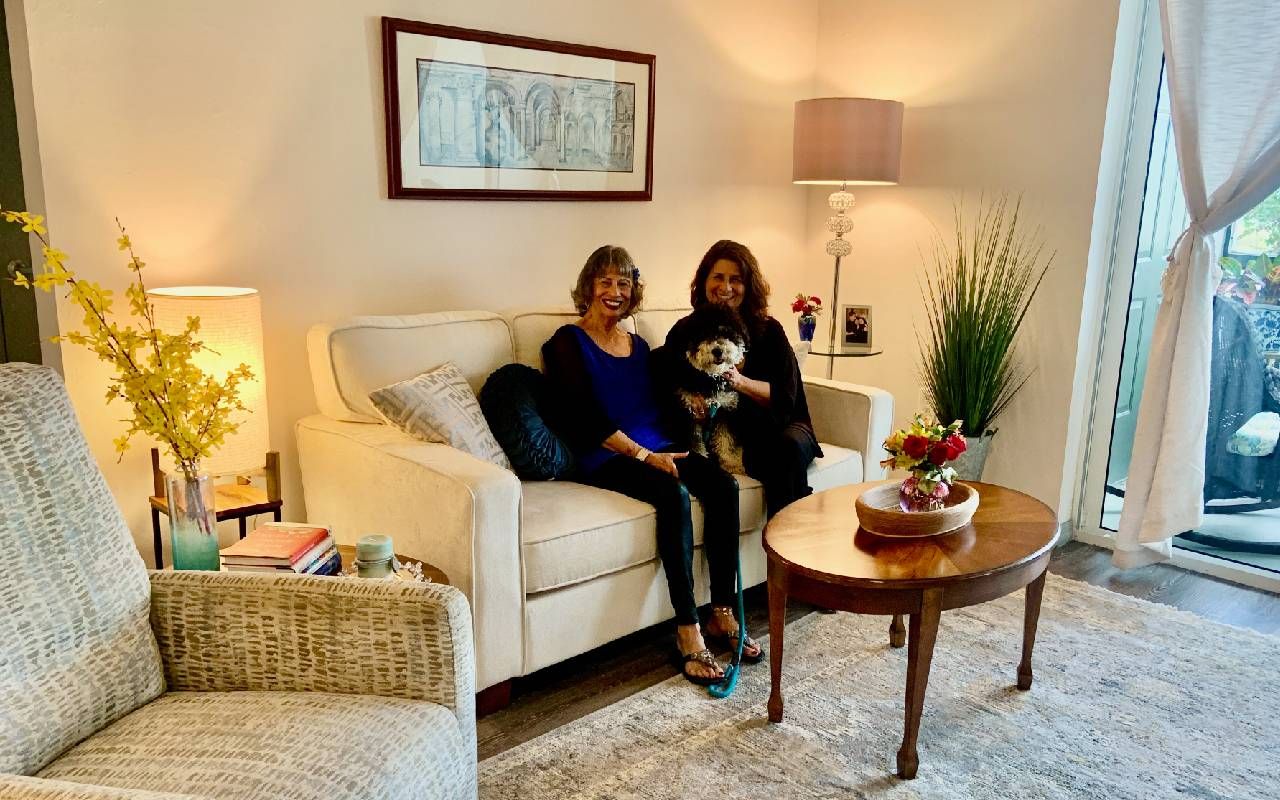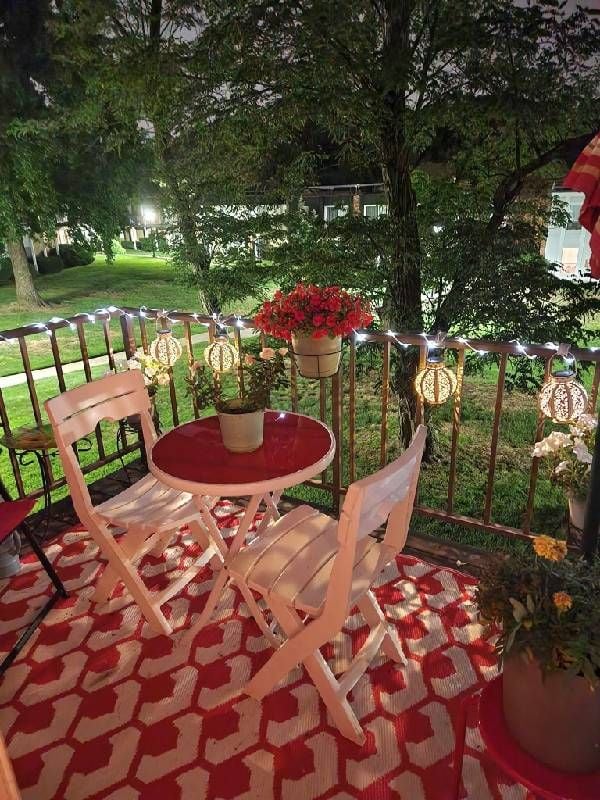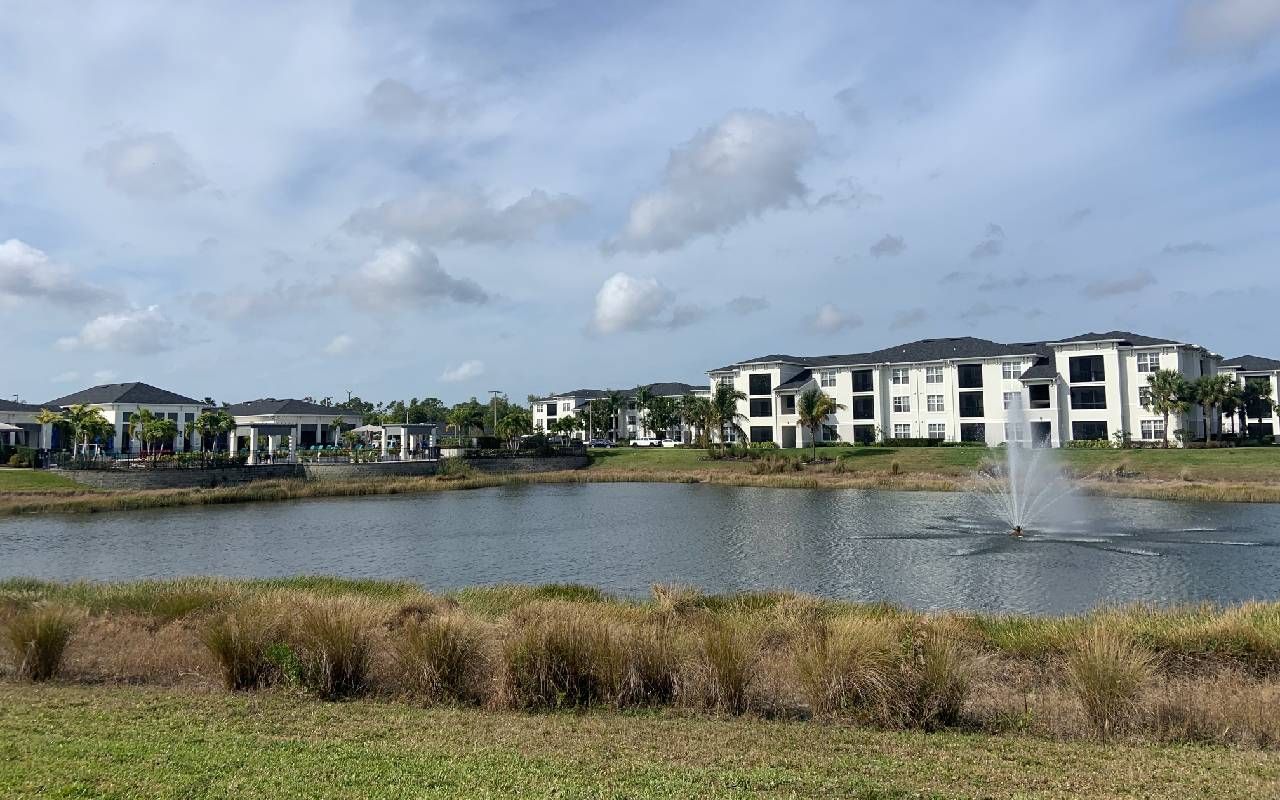The Allure of Apartment Life
Here are some reasons why renting may be smarter than buying for single women over 50
One sunny afternoon not long ago, I left my garden-level residence and sauntered over to the turquoise-blue heated swimming pool for a respite from caregiving. During the 500-step walk, the flow of the lake fountain with egrets soaring past was instantly calming.

It felt as though I resided at a five-star resort. With equal parts guilt and wonder whenever viewing my surroundings, I ponder whether renting at this stage in life — I was 57 at the time— is the most intelligent decision.
More Older Adults Are Renting
For many women aged 50 and older, divorce, children moving out, the death of a loved one and other life events catapult us into contemplating our long-term home situation. In late 2022, I left an empty nest in Minneapolis to relocate to a two-bedroom apartment in Estero, Florida, only a few miles from where my mother lives, to support her on her Alzheimer's journey.
According to the Pew Research Center, 30% of adults aged 55 and older live in rented accommodations, more than at any time since 1965. For me, with house prices and mortgage rates high and my mother's prognosis uncertain, it seemed more prudent to sign a lease rather than take on a mortgage when I arrived in Florida.
It has been more than a year since I settled into my apartment complex, and I have been pleasantly surprised by the lifestyle benefits available to me as a renter but that were out of reach as a homeowner. In talking with several other women — two financial advisors and one psychologist — here's where we netted on the pros and cons of letting go of the "American Dream."
Freedom, Flexibility and Simplicity
Lori Keller, 63, no stranger to renting, moved into her first efficiency unit when she was 18 and has been shuffling in and out of apartments and homes across the country since then. Keller recently transferred to Southwest Florida from the Pacific Northwest to be near family and determine her next chapter. "Living in an apartment offers me the utmost freedom, whether I want to move across town or the country," she said. "I love that!"
Additionally, there is more time for fun and relaxation when one is not burdened with fixing, upgrading or maintaining a house or yard. "My place is low maintenance and turnkey," Keller said, "providing flexibility to spend my free time enjoying life." That can mean going to the beach with friends, taking a road trip or reading an enjoyable book, she added.
"It's nice to have both a sense of privacy and community at hand."
Alyssa Roberts, a practicing psychologist, researcher and senior writer at Practical Psychology, supported that approach to life. "Having more time and energy to focus on personal goals, relationships and leisure activities is vital for mental health," she said.
Keller said another bonus of downsizing is having a smaller space that encourages a less-materialistic lifestyle. "I have lived in homes with room for storage and a basement: it's amazing how quickly things accumulate," she said. "Apartment life fosters a 'less is more' lifestyle, which I'm partial to as I've gotten older."
Amenities Mirror a Vacation Lifestyle
When surveying potential rental locations, finding developments where you feel comfortable and safe are top considerations for older women. Beyond those, you may want to focus on communities that offer amenities whose costs are included in your rent. These facilities range from heated indoor or outdoor pools, hot tubs, firepits, 24/7 fitness rooms, business centers and dog parks.
Another advantage of living in an apartment house versus single-family home may be accessibility. That is the case for Carolyn Davis, in Providence, Rhode Island. Davis is 64 and uses a wheelchair, so elevator access, package services and 24-hour security are paramount in maintaining her quality of life.
"One of the concierges brings me my mail; there is an elevator, and the ground level is flush with the outside, so I never have to worry about stairs," Davis explained. She also appreciates having neighbors close but not so close, she added. "Because I am physically vulnerable, it's nice to have both a sense of privacy and community at hand."
When Kam Magor, 78, sold her three-bedroom house in Austin, Texas, her initial plan was to live the "van life." Unfortunately, health issues delayed her departure, and she became a renter in limbo. "At the time," Magor said, "I wasn't thinking whether I would like apartment living, but it turns out, I really enjoy it."
A few unexpected perks she described include an aesthetically pleasing complex and the convenience of being within walking distance of a dog park and small outdoor pool.
Alissa Wolf, 67, shared the same sentiment regarding her space in Maple Shade, New Jersey, "I live in a cheerful community, have a beautiful balcony I decorate with each season, and a view overlooking a pretty park."

Proximity Encourages Connections
Back in Minnesota, my rambler, or ranch house, sat on a quiet cul-de-sac with five other houses tucked into our corner of the world. As a single mom with a full-time career, my neighbors were often a lifeline for me, whether they were assisting with furniture, letting the pup out or lending something. Yet, with the long winters, we could go months without running into one another, which is different in communal living.
According to Roberts, one study found baby boomer renters were more engaged with neighbors and twice as likely to exchange favors than suburban homeowners.
It's easy to understand how this happens when living in a community with hundreds of other residents (sometimes more). For example, familiarity lends itself to quickly learning and ultimately caring about one another when sharing the dog park, chatting at the mailboxes or attending social events with neighbors.
"Unlike isolated single-family homes," Roberts said, "the constant opportunity for social connection has been proven to dramatically reduce loneliness and improve mood and cognition in adults over 50."
Discovering the Drawbacks
With all the favorable lifestyle reasons highlighted above, you may ask, "What's the downside?" I won't lie; several negatives come with renting rather than owning.
The women I spoke with, me included, worried about noise and nosy neighbors when moving into housing without soundproof walls and people milling around at all hours. While valid, these are minor annoyances in the scheme of things — the more significant drawbacks center around not controlling your entire environment.
Specifically, management sets rules of shared facilities, visitor parking, the timing of sprinklers going off or when landscapers arrive (always during a Zoom meeting) and the hardest to digest, rent increases when your lease is up for renewal.
Or the opposite, when the cost of the same style units is lowered to stay competitive in the marketplace, management may require its current tenants to "transfer" apartments to enjoy the savings.
Lastly, as renters, you have no say in what eventually happens with the place you temporarily occupy and no opportunity to benefit from any equity in the property.
Here are some financial considerations when reviewing housing options.
Weighing Risks and Rewards
One of the more apparent benefits of renting versus buying is not parting with a hefty amount of cash, whether for a down payment or significant expenses such as fixing the roof or replacing appliances.
Laurie Itkin, a Certified Divorce Financial Analyst, encourages newly divorced women to rent for a year or two as they get their bearings on where they want to be long-term.
"You wouldn't want to purchase a home if you think you may leave soon," she explained, "since there are transaction costs with buying and selling, including paying a broker, mortgage application fees, refinancing fees and moving expenses." All of these reduce any potential profit when selling.
Itkin also cautioned that if you buy a home and are over 60 or 70, what would happen to the house if you had to move into an assisted-living facility? Would you have enough money if the time comes, or would you be able to extract the funds out of your house?

Pamela J. Sams, a Chartered Retirement Planning Counselor with Jackson Sams Wealth Strategies in Herndon, Virginia, stressed the importance of determining where you are on your retirement track before making any decisions. "Be sure your retirement is well-funded before buying a [or another] house," she stated.
"Often, clients discount renting because the 'American Dream' is to own a home," Sams added. "But it could be at the detriment of not having enough money later in life."
She offered key questions to ask yourself:
- What do I want to accomplish?
- How much money do I still need for my retirement?
- What is the long-term savings between renting and buying?
- If buying a home, is it for investment purposes or to create generational wealth (for example, leaving it to children to sell and split proceeds)?
- Does having this asset make sense for me if I don't have kids?
"Living in an apartment offers me the utmost freedom, whether I want to move across town or the country. I love that!"
Don't forget there may be additional costs of home ownership, including property tax (if you reside in a taxed state) and HOA (Homeowner Association) fees. Sams recommended adding 20% to your monthly mortgage amount and then comparing it to the average rent in your area. Depending on where you live, rent may be less expensive in the long run.
For instance, while my rent is over 20% higher than my last mortgage, my spending is lower because I no longer have the continuing expenses of managing a home. I make an automatic payment for rent and utilities on the first of every month, which is all I will pay for the next 30 days. Many people believe renting is "throwing money down the drain." However, Itkin refers to this as "paying a premium for flexibility."
Of course, whether one should rent or buy is an entirely personal question, often with an "it depends" answer. After listening to other renters and experts, I will be more relaxed and confident strolling down the walking path.
For now, my decision to live the apartment life is a good choice for me and a wise investment in my overall well-being.


